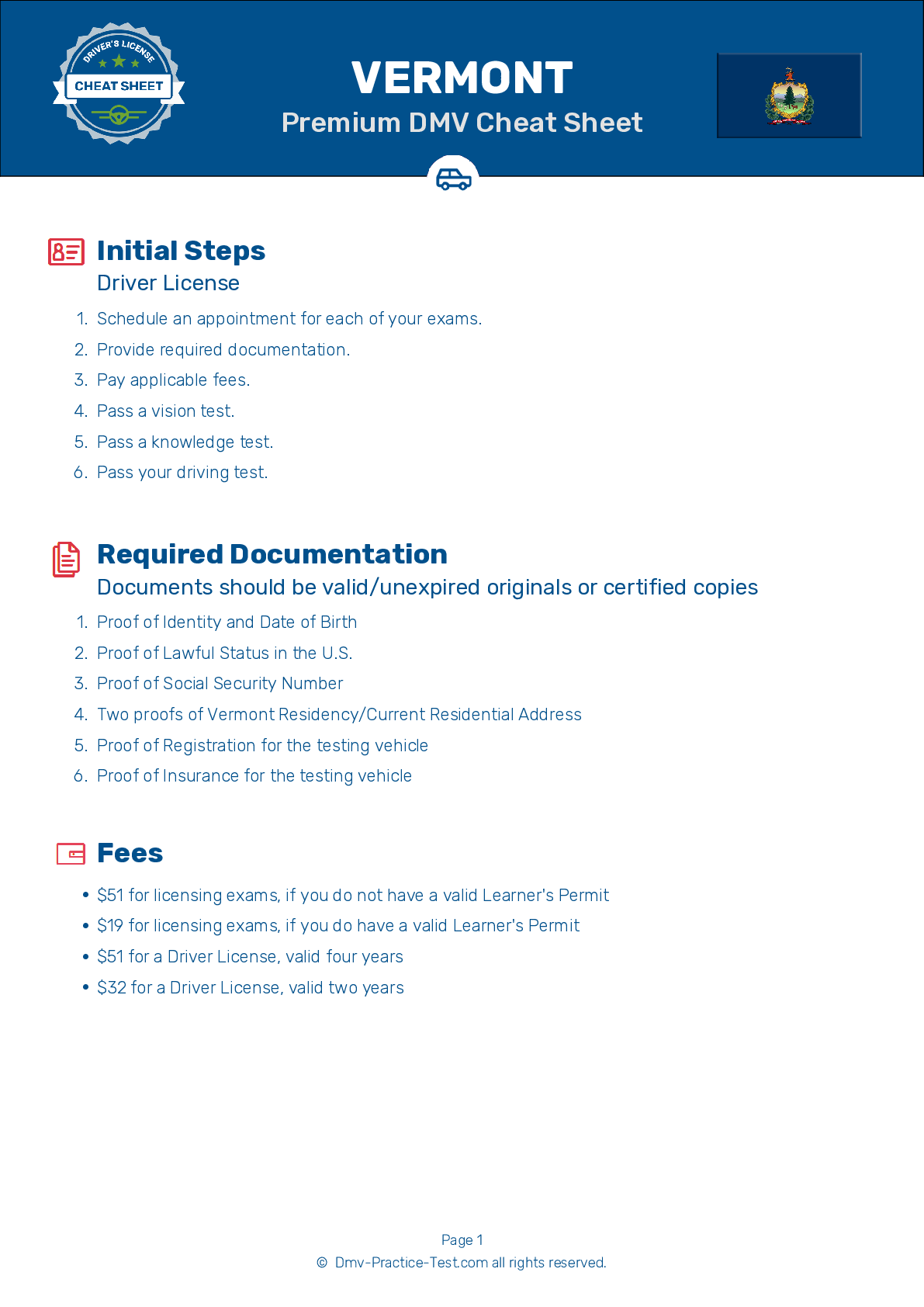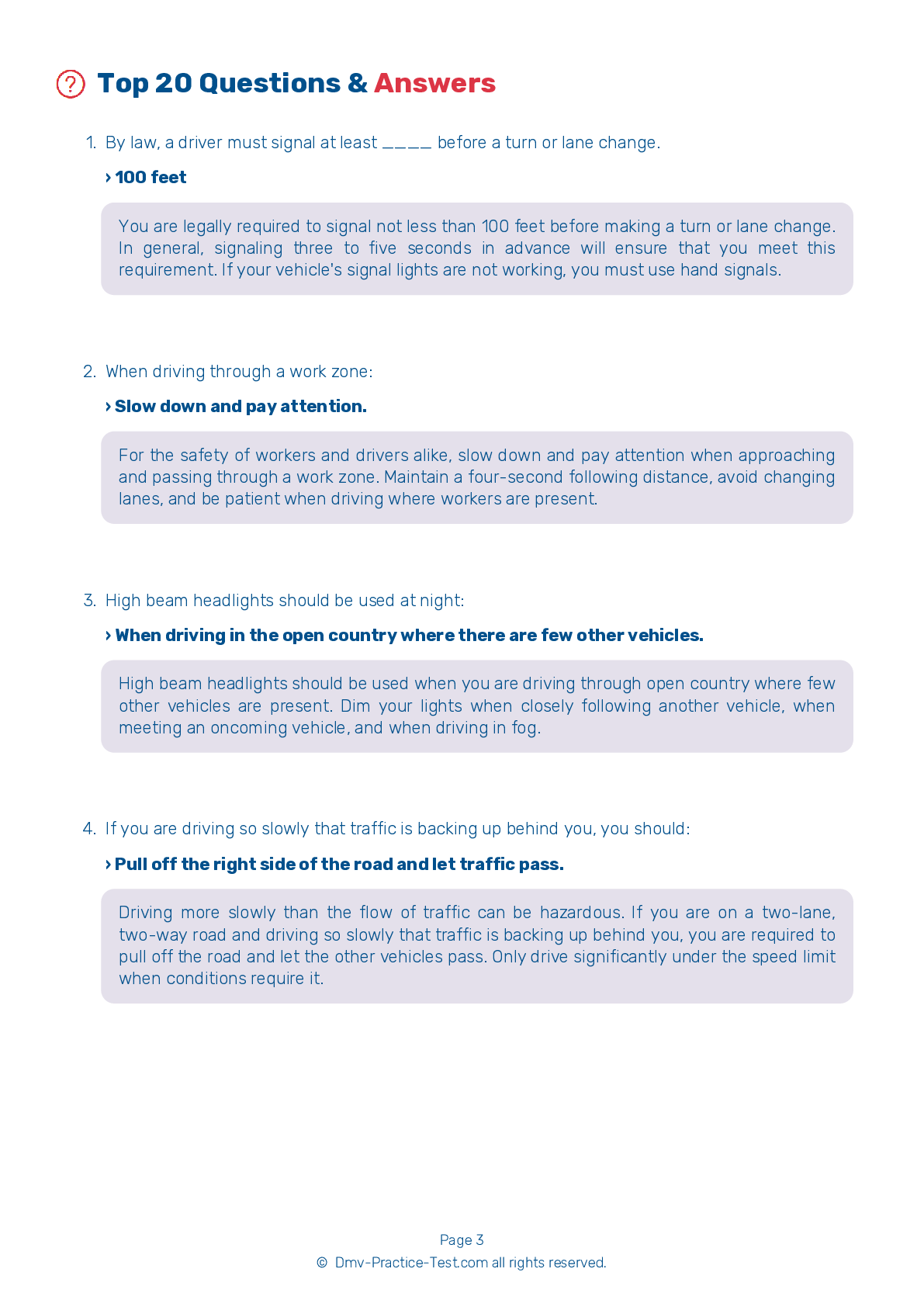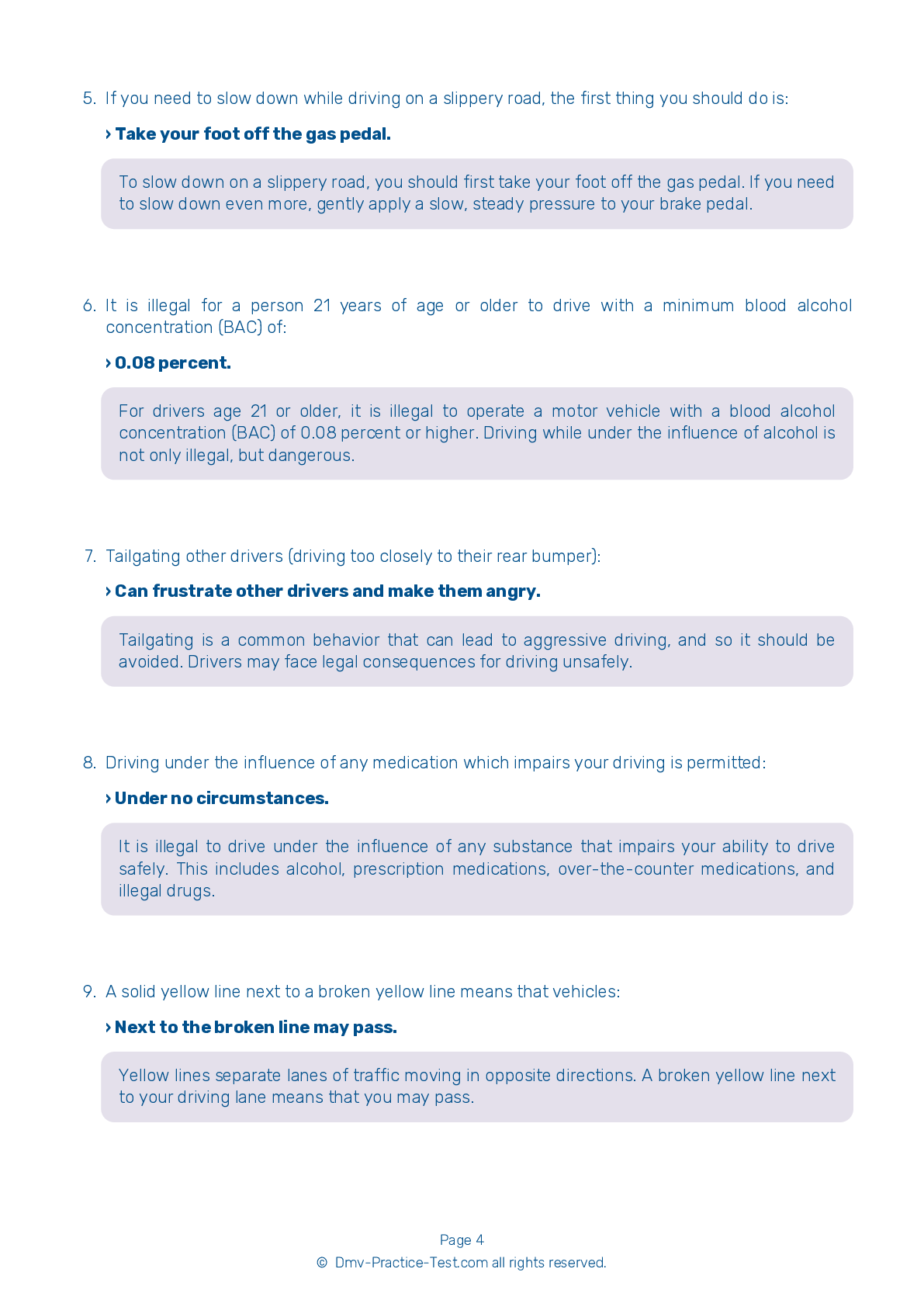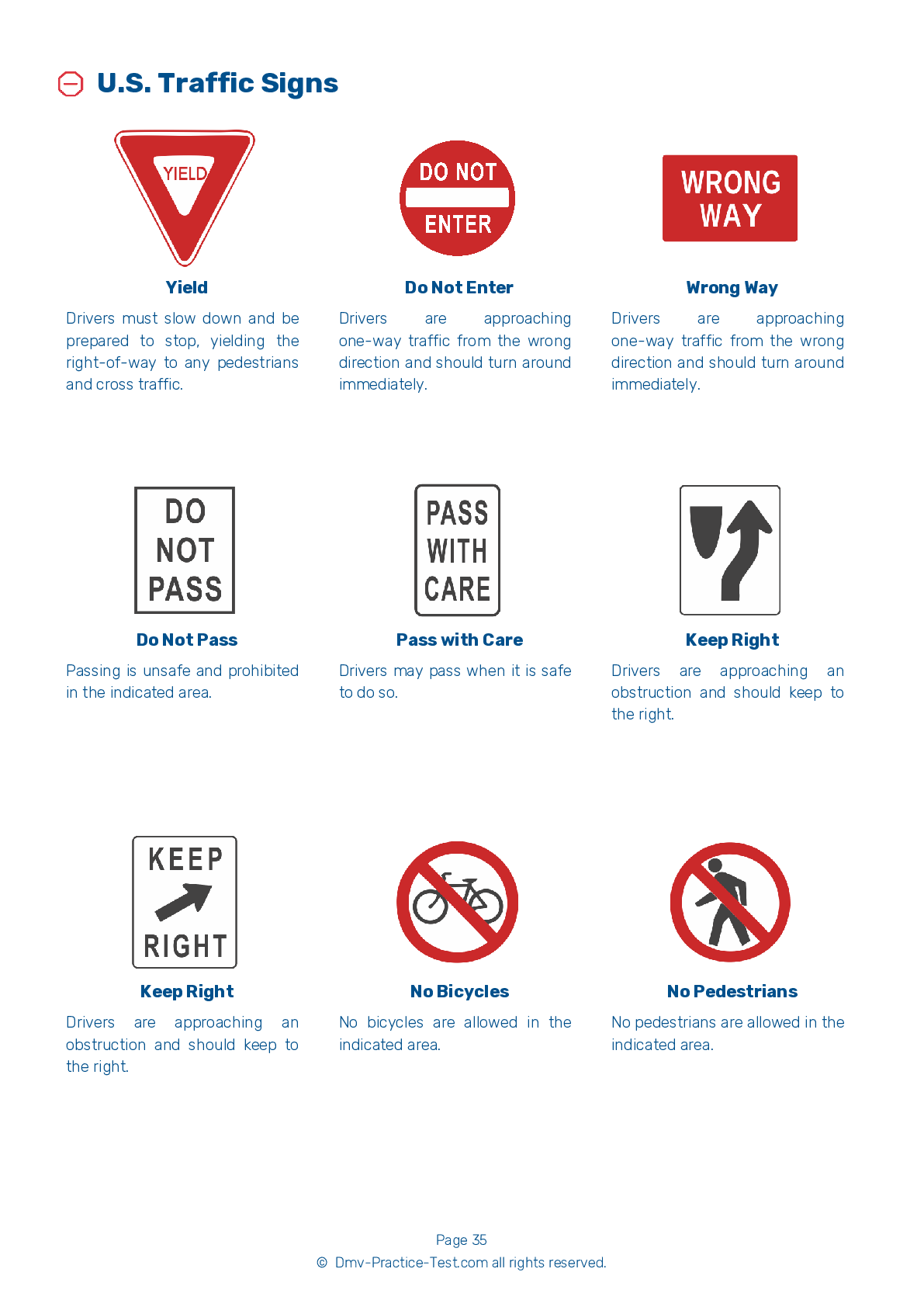FREE Vermont DMV Practice Test #17 Page 3 of 3
The Vermont DMV practise examinations have been updated for January 2025. It includes questions based on the Vermont Driver Handbook's most significant traffic signals and legislation for 2025. Use actual questions that are very similar (often identical!) to the DMV driving permit test and driver's licence exam to study for the DMV driving permit test and driver's licence exam.
On the practise exam, each question gets a tip and explanation to help you remember the concepts. The written component of the official Vermont DMV test will include questions about traffic rules, traffic signs, and driving statutes, as well as knowledge from the Driver Handbook.
To obtain a passing grade, you must correctly answer 16 of the 20 questions. Use the practise exam provided by the Vermont Department of Motor Vehicles to help you prepare for your instruction permit or driver's licence.
The DMV exam is available in several languages.
Using any kind of testing assistance will result in an automatic fail, and the DMV may take additional action against your driver's licence, so stay away from it.
14 . Drinking coffee after drinking alcohol:
Drinking coffee will not reduce your blood alcohol concentration (BAC). While it may help you to stay awake, it cannot change your BAC or make you sober.
15 . This road sign means:
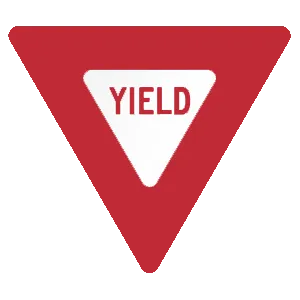
This type of triangular sign means drivers must yield. You must slow down as you come to an intersection marked with this sign and be prepared to stop. Let any other vehicles, bicyclists, or pedestrians pass safely before you proceed.
16 . When preparing to turn left, drivers should:
As you approach a left turn, signal your intentions three to five seconds in advance. Continually check your rearview mirror as you gradually slow down. On a multilane road, move into the left lane before reaching the intersection where you plan to turn. Yield to traffic and pedestrians and turn when your path is clear.
17 . Compared to driving during the day, driving at night is:
Driving at night is more dangerous than driving during the day for several reasons. It is harder to see in the dark, you may be temporarily blinded by the glare from other vehicles' lights, and there are likely to be more drivers on the road who are tired or under the influence.
18 . Drivers must yield to a pedestrian:
Drivers must always yield to pedestrians in the street, even if they are crossing against a red light or are otherwise being careless.
19 . A telltale sign of a drunk driver is:
Telltale signs of drunk driving include speeding, weaving, driving more slowly than the normal traffic flow, making jerking motions, and making quick and sudden stops.
20 . If a driver sees an animal on the roadway:
Be very cautious any time you encounter an animal on the roadway. Pass the animal slowly to avoid startling or frightening it.
2025 Vermont | Frequently Asked Questions
1. Not checking mirrors and blind spots before changing lanes or turning.
2. Speeding or driving too slowly for the conditions or posted speed limit.
3. Not coming to a complete stop at stop signs or red lights.
4. Incorrect signalling or not signalling at all.
5. Poor parking, especially parallel parking.
Remember, practice makes perfect, so take time to hone your skills.
